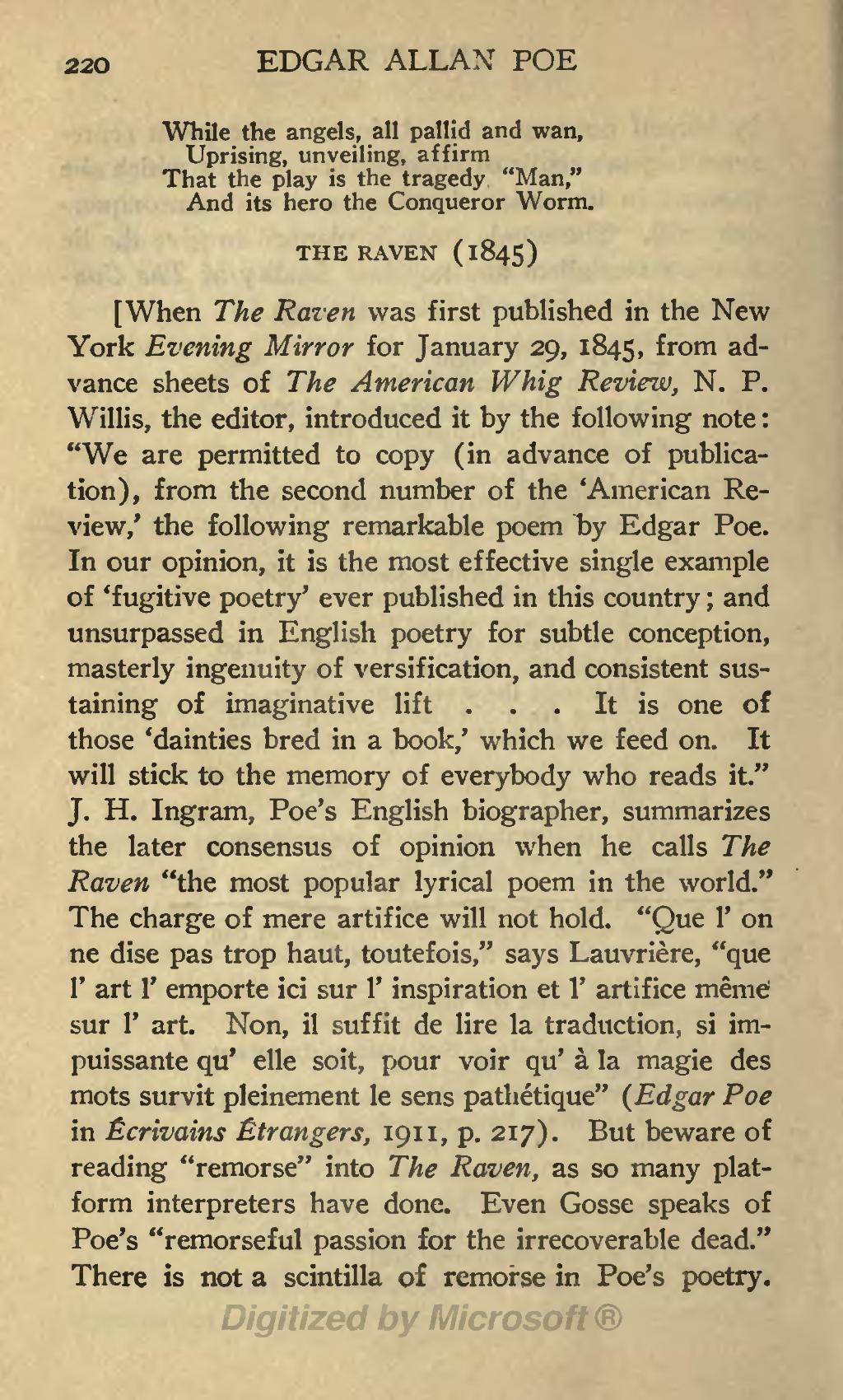While the angels, all pallid and wan,
Uprising, unveiling, affirm
That the play is the tragedy "Man,"
And its hero the Conqueror Worm.
THE RAVEN (1845)
[When The Raven was first published in the New York Evening Mirror for January 29, 1845, from advance sheets of The American Whig Review, N. P. Willis, the editor, introduced it by the following note: "We are permitted to copy (in advance of publication), from the second number of the 'American Review,' the following remarkable poem by Edgar Poe. In our opinion, it is the most effective single example of 'fugitive poetry' ever published in this country; and unsurpassed in English poetry for subtle conception, masterly ingenuity of versification, and consistent sustaining of imaginative lift ... It is one of those 'dainties bred in a book,' which we feed on. It will stick to the memory of everybody who reads it." J. H. Ingram, Poe's English biographer, summarizes the later consensus of opinion when he calls The Raven "the most popular lyrical poem in the world." The charge of mere artifice will not hold. "Que l' on ne dise pas trop haut, toutefois," says Lauvrière, "que l' art l' emporte ici sur l' inspiration et l' artifice même l sur l' art. Non, il suffit de lire la traduction, si impuissante qu' elle soit, pour voir qu' à la magie des mots survit pleinement le sens pathétique" (Edgar Poe in Écrivains Étrangers, 1911, p. 217). But beware of reading "remorse" into The Raven, as so many platform interpreters have done. Even Gosse speaks of Poe's "remorseful passion for the irrecoverable dead." There is not a scintilla of remorse in Poe's poetry.
